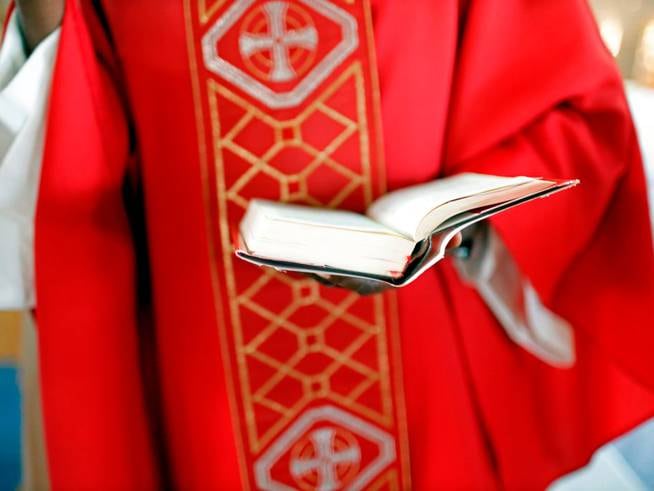1984 was a key year for heavy metal. Van Halen released their most successful album, which they called precisely ‘1984’. Metallica returned to the fray after their overwhelming debut, ‘Kill em All’, with a no less furious album, ‘Ride the Lightning’, one of the cornerstones of thrash metal. And Iron Maiden, representatives of the most classic heavy music, did the same with ‘Powerslave’, one of their most rounded and inspired works. They were days of manes, studs and guitar solos impossible.
In the midst of all this cultural explosion, another album went much more unnoticed among fans of the genre. The Californians Stripper They released their debut, ‘The Yellow and Black Attack’, which would ultimately lay the foundations for an entire movement: Christian heavy metal. They were not the first: the Swedes Jerusalem They had been playing since 1975 in a style closer to hard rock, and the Canadians Daniel Band Formed in Toronto in 1979, they already had a small group of followers. However, Stryper was the first Christian heavy metal band to achieve some commercial success.
Stryper, at a recent concert. / Stephen J. Cohen
The key was not in the style, which was not too far from that of other heavy bands, but in the lyrics. Instead of singing of destruction or worship Satan, Striper were talking about the Bible. Instead of preaching individualism, they reflected on loving one’s neighbor. And in the face of dominant hedonism, they stressed the importance of distancing oneself from negative influences.
Already in the 90s, some groups demonstrated that religiosity could be brought even to the most extreme subgenres of metal, such as death and black.
After Stryper, the door was opened to a whole series of bands that seemed to understand that their beliefs were not incompatible with playing their preferred style of music. Barren Cross and Deliverance They stood out in the 80s. Mortification and Horde, Already in the 90s, they showed that religiosity could be brought to even the most extreme subgenres of metal, such as death and black. And in recent times, names like The Chariot, Divine Fire, Still Remains, Antetor or Rob Rock They have kept the flame alive.
“Christian heavy metal has existed almost since the beginning,” he recalls Paco Fernandez, responsible in Spain for the German label Century Media, one of the most important in the genre worldwide. “In fact, it has been adapting perfectly to the times and to the different styles, and even in Century Media we even had a subdivision dedicated to Christian metal at the time, which has disappeared today.”
“Many of the great heavy gurus of the 80s have gone to the opposite pole and have converted to Christianity”
There is a great paradox. “Many of the great heavy gurus of the 80s have gone to the opposite pole,” says Paco. “From Blackie Lawless from WASP, who was a guy who pretended to rape nuns and decapitate fetuses on stage, like Dave Moustain from Megadeth or Nicko McBrain from Iron Maiden. “All of them have felt a kind of call and have converted to Christianity.”
In God we Trust
Today a scene still exists. “There are many young bands that are already born with that discourse,” says Paco. “I think it bothers us a little in Spain, but in the US music dedicated to God is something very widespread and is in all areas: from country to hip hop. It is a huge industry that moves a lot of money, and that in a certain way is inserted in the very DNA of the United States, from its country’s own motto, ‘In God We Trust’, which in fact is the title of an album by “Stryper.”

A priest holds a Bible. / Godong
In the opinion of Miguel Martín Pazat, youtuber and great lover of metal in all its aspects, “in the US many people associate metal with be right-wing It’s strange, because in Spain the opposite happens, but in reality this changes depending on the country. That is why perhaps the Christian groups there have it easier,” he reflects.
Is there something performance in this whole genre? “Stryper reached throw bibles to the public, and others like Demon Hunter came out to play dressed as priests, with collars and everything,” Miguel remembers. “But in general I would say that they are groups that are open-minded enough to accept new genres. Of course: believers enough to not stop shouting and proselytizing,” he jokes.






